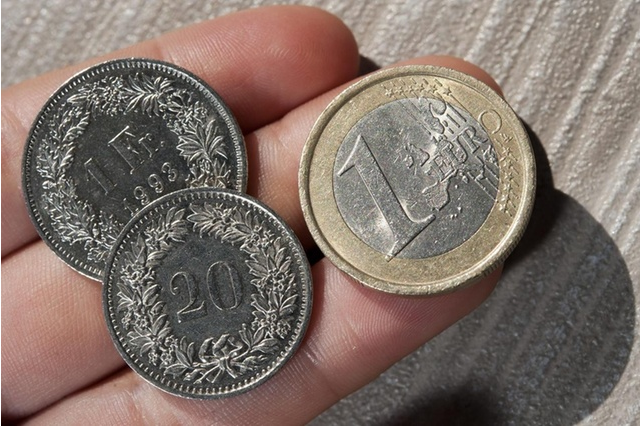The Swiss franc has started to appreciate in value against other currencies, including the euro, once again. One knock-on effect of the escalating trade war between the United States and China is that the Swiss franc is becoming more attractive for investors – putting pressure on the Swiss National Bank (SNB) to come to the defence of the safe haven currency. For much of July a euro bought at least CHF1.10. But the franc has strengthened this past month, trading at around CHF1.09 against the single currency in the last couple of days. Several economists, including Janwillem Acket of the Julius Bär bank, believe the markets have been spooked by a ramping up of the China-US trade dispute. On Monday, tensions were
Topics:
Swissinfo considers the following as important: 3.) Swiss Info, 3) Swiss Markets and News, Business, Featured, newsletter
This could be interesting, too:
Nachrichten Ticker - www.finanzen.ch writes Die Performance der Kryptowährungen in KW 9: Das hat sich bei Bitcoin, Ether & Co. getan
Nachrichten Ticker - www.finanzen.ch writes Wer verbirgt sich hinter der Ethereum-Technologie?
Martin Hartmann writes Eine Analyse nach den Lehren von Milton Friedman
Marc Chandler writes March 2025 Monthly

The Swiss franc has started to appreciate in value against other currencies, including the euro, once again.
One knock-on effect of the escalating trade war between the United States and China is that the Swiss franc is becoming more attractive for investors – putting pressure on the Swiss National Bank (SNB) to come to the defence of the safe haven currency.
For much of July a euro bought at least CHF1.10. But the franc has strengthened this past month, trading at around CHF1.09 against the single currency in the last couple of days.
Several economists, including Janwillem Acket of the Julius Bär bank, believe the markets have been spooked by a ramping up of the China-US trade dispute. On Monday, tensions were ratcheted a notch by China allowing the renminbi to weaken against the US dollar.
However, a strengthening franc is bad news for Swiss exporters and the domestic tourism industry, which has been showing some positive signs recently.
According to Acket, the Swiss manufacturing sector has already dropped into recession, a scenario which has in the past prompted the SNB to intervene in currency markets, selling francs to buy up other currencies, bonds and investments.
While the SNB does not talk about its interventions in detail, one indicator is the amount of cash commercial banks park within its walls. This stockpile increased 3% to CHF583 billion ($597 billion) at the end of July – a strong hint that the SNB is at work.
Another defence mechanism is for the SNB to make the franc less attractive by lowering interest rates. And though these have been in negative territory at -0.75% for some time already, the US lowered interest rates last week and the European Central Bank has hinted at taking the same approach next month.
Acket believes that the SNB will be forced to act in similar fashion, possibly dropping rates to -1%, if the euro-franc exchange rate falls below CHF1.06.
Commercial banks in Switzerland have in turn started to pass on the negative interest rates to corporate clients. Switzerland’s largest wealth manager, UBS, is reportedly poised to charge ultra-rich clients negative rates from next year.
Tags: Business,Featured,newsletter
